Feeling Grateful For a Full Fridge: On Rationing and the Black Market in WWII Britain
What was it like for British citizens during World War II, when it came to feeding their hungry families? Read and see…and please leave author Anne Clare a comment, as she’s giving away a copy of her debut novel, Whom Shall I Fear to one commenter. I’ve read this book, and it reminded me that there’s ALWAYS more to learn about this tough time in history. Thanks for visiting!
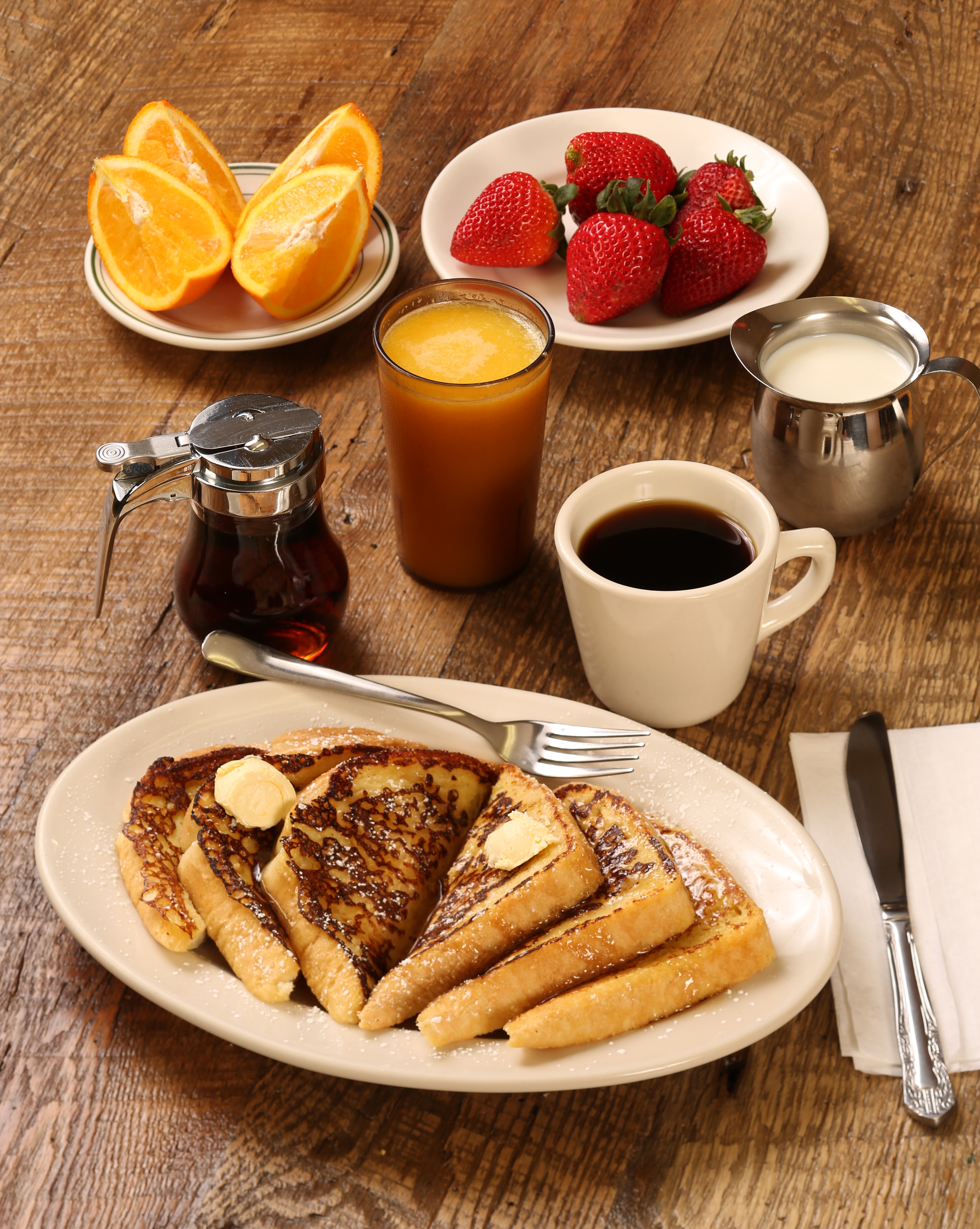
As I’m writing this, it’s Saturday morning, which is “hot breakfast” morning in my family. This morning, I was in the mood for French Toast. I pulled open my fridge and grabbed eggs- there were plenty left from the 18 I’d bought last shopping run. The milk was a little low, but I could just pick up more later. With the cheap loaf of bread I’d picked up on sale yesterday, I was all set!
The steps between “I want this to eat” and “Hey kids, it’s breakfast time!” were so simple that it’s easy to forget that it wasn’t always so.
Before the onset of the Second World War, the island nation of Great Britain had imported around 70% of its food—not to mention other goods—requiringmillionsof tons of shipping.
Then, war broke out.
German U-boat “wolf packs” prowled the Atlantic, blocking shipments, destroying ships, and threatening to starve Britain into submission. How were the British people to be sustained?
The British Ministry of Food enforced a strict rationing program to ensure that there would be sufficient food to go around. Families would register with local sellers to receive their weekly allotments. Lines, or “queues” were long, and families had to plan out how they would use their ration coupons and points from week to week—assuming, of course, that the items they were standing in line for wouldn’t have run out by the time they got to the front.
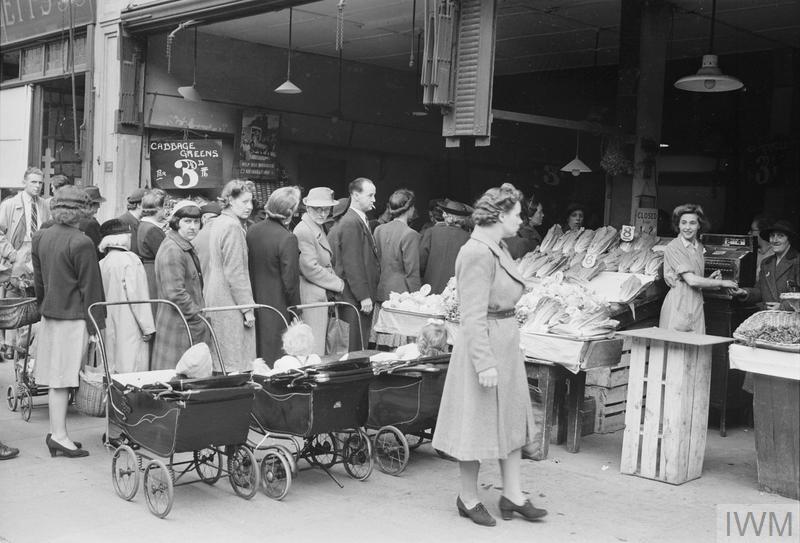
People queuing at a greengrocers in High Road, Wood Green, North London, a familiar wartime sight. © IWM (D 25035)
Kitchen staples like milk, sugar and fat fell under rationing. Average weekly rations for an adult would include 8 oz sugar, 4 oz bacon or ham, 3 pints of milk, 2 oz of tea, and one fresh egg.*
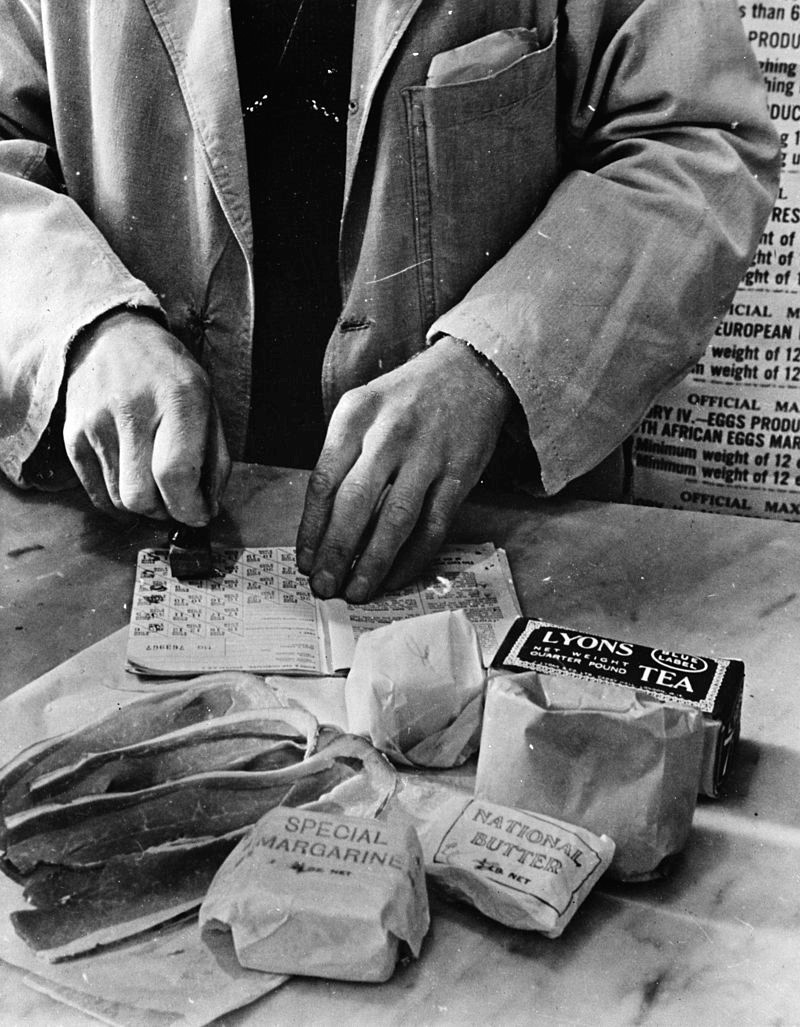
“A shopkeeper cancels the coupons in a British housewife’s ration book for the tea, sugar, cooking fats and bacon she is allowed for one week. Most foods in Britain are rationed and some brand names are given the designation “National”” Photo and caption courtesy of Wikimedia commons.
Non-food items, like clothes, shoes, gasoline and soap, also fell under ration.
However, fruit and vegetables did not, and many people participated in the “Dig for Victory” program, planting gardens in every available bit of soil. Others found clever ways to make up for items they couldn’t get—girls might paint their legs to simulate “stockings” or use beetroot juice to color lipstickless lips.
Some people, however, chose less reputablemeans to supplement their rationed goods.
Illegal activities took many forms. In some cases, it might be as simple as someone “forgetting” to mention that an elderly relative had died and continuing to collect rations with their books. Or perhaps someone might raise chickens but not register the eggs that were produced. In the cities, bombed out buildings were a strong temptation for looters. And, as might be expected, a black market thrived.
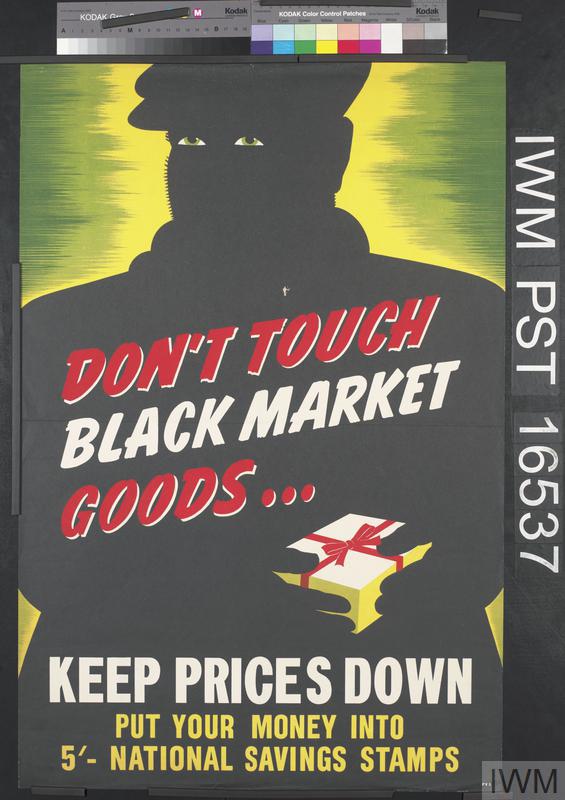
Image courtesy of the Imperial War Museum © IWM (Art.IWM PST 16537)
If someone wanted to find something and couldn’t through legal means, “spivs” had wares to offer, off the books, for a price. Even reputable shopkeepers might have a few things under the counter. As the war dragged on, even people who wouldn’t have considered theft in ordinary times might be tempted to supplement their rations if something that had “fallen off the back of a lorry” just happened to be for sale in their area.
While some steered clear of illegal goods, the temptation was strong—according to the Imperial War Museum, “By March of 1941, 2,300 people had been prosecuted and severely penalized for fraud and dishonesty.” ** And there were still four years of war left to go.
As I was researching all of this for my recently released novel, Whom Shall I Fear?—in which one character finds himself deeply entangled in the underworld of the black market, with dangerous consequences—I found myself newly grateful for the often-overlooked blessings of a fully stocked pantry and grocery stores!
Thank you for letting me visit today, Gail!
For more information, see my sources below, or for fascinating anecdotal stories about Britain’s wartime experiences, check out the BBC People’s War Archives. (http://www.bbc.co.uk/history/ww2peopleswar/)
*Stats taken from the BBC news article “Breaking the Law During World War II” by Duncan Leatherdale ( https://www.bbc.com/news/uk-england-33566789)
**Quote taken from IMW article “What You Need To Know About Rationing In the Second World War” ( https://www.iwm.org.uk/history/what-you-need-to-know-about-rationing-in-the-second-world-war)
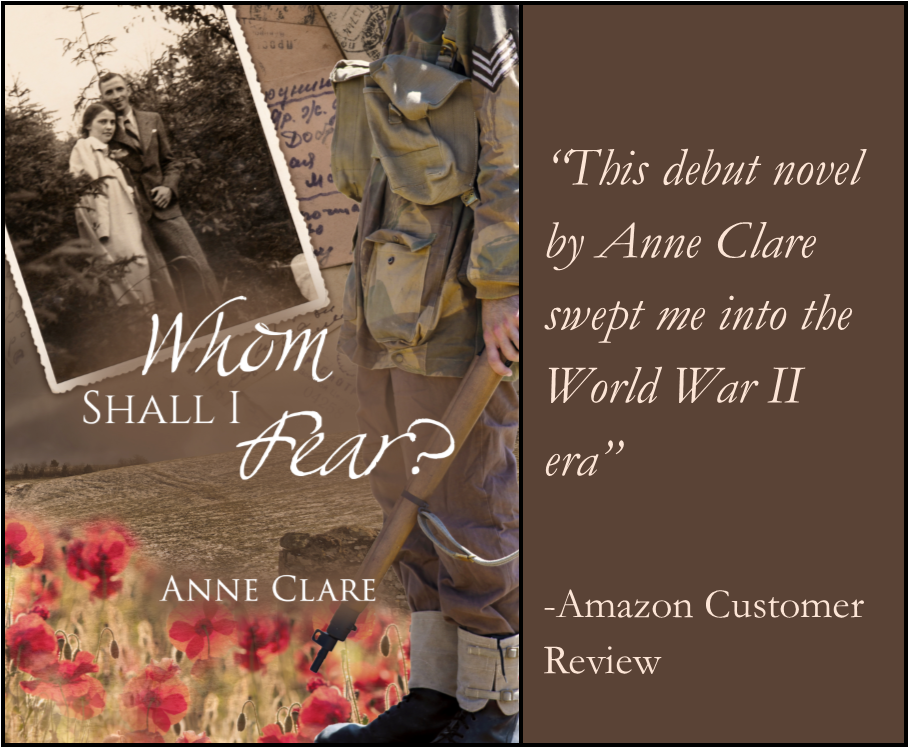
http://thenaptimeauthor.wordpress.com
https://www.facebook.com/anne.clare.1610
Amazon link: https://www.amazon.com/s?k=Whom+Shall+I+fear+anne+clare&ref=nb_sb_noss_2
